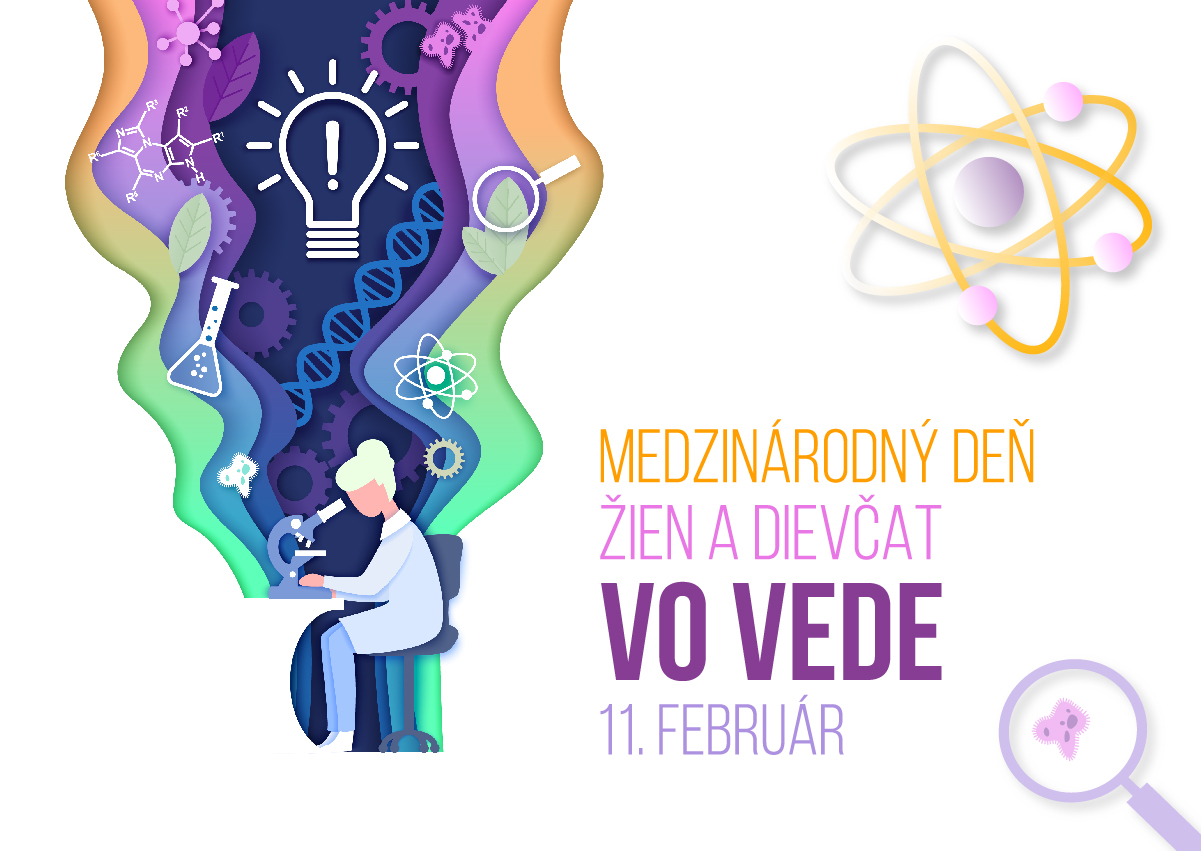International Day of Women and Girls in Science
International Day of Women and Girls in Science (February 11) seeks to promote equal opportunities for women and girls and their participation in science. Today we aim to advocate for creating conditions (working, social, …) that would allow women to pursue a career in science, particularly in STEM areas (science, technology, engineering, mathematics).
To mark the occasion we asked Dr. Céline Merletan outstanding young scientist, to tell us more about her inspiration and career path. Dr. Merlet works as a CNRS researcher in the CIRIMAT laboratory at Université Toulouse III - Paul Sabatier working on developing multi-scale models to describe energy storage materials. She received the PRACE Ada Lovelace Award for HPC1 in 2021 for her outstanding impact on HPC in Europe. Not only has Dr Merlet decisively advanced the investigation of supercapacitors with numerous innovations; she is also active in “Femmes & Sciences" an association that promotes women in science and technology.
- When / How did you know that you wanted to be a scientist?
When I was a teenager, I wanted to be a vet. I started the studies to become one but realised that I was more attracted by other areas of science: chemistry and computer science. So I changed field by joining a chemistry engineering school in Paris (Chimie ParisTech).
- Who or what inspired you to pursue studies in the STEM areas?
During my three years at the chemistry engineering school, we had the opportunity to conduct research projects in labs. I spent three weeks in the group of Prof. Mathieu Salanne at Sorbonne Université and realised that molecular simulations is what I wanted to do. I was simulating molten salts for applications in the energy field (salts like NaCl, i.e. kitchen table salt, liquid at high temperatures). Using computer science to study phenomena relevant for understanding and improving materials / devices was so enjoyable that I decided to continue in that direction. - Did your family, friends and teachers support you in your decision to study STEM subjects?
My family was very supportive and I have the feeling this would have been the case for any topic. My parents wanted us to be able to do what we like. My teachers were also supportive. I was a bit worried when changing from biology to chemistry as I had imagined myself for a long time as a vet, so the discussions with my teachers really helped at this point. - What is the subject of your research in present? (very briefly, perhaps with an image?)
My research focuses mainly on solid-liquid interfaces in electrochemical systems, usually for energy storage systems such as batteries (used in laptops, smartphones, etc...) and supercapacitors (high power devices used in start-stop systems and for regenerative energy braking among other applications). I use computer simulations to study phenomena happening at the molecular scales in pores of nanometer size, i.e. holes of around a billionth of a meter. The joined image, extracted from a computer simulation, illustrates solvent molecules and ions (charged molecules), in green/blue/red in these pores of the porous carbon materials, in black. - What would be your message to girls, who would like to pursue their interest in STEM subjects, but hesitate to enter a field, where women are significantly underrepresented? (or something along this line…)
If women are underrepresented in some STEM subjects, this is unfortunately due to societal bias but not at all to competence or skills. Everyone should be able to do what they like without worrying about gender considerations.
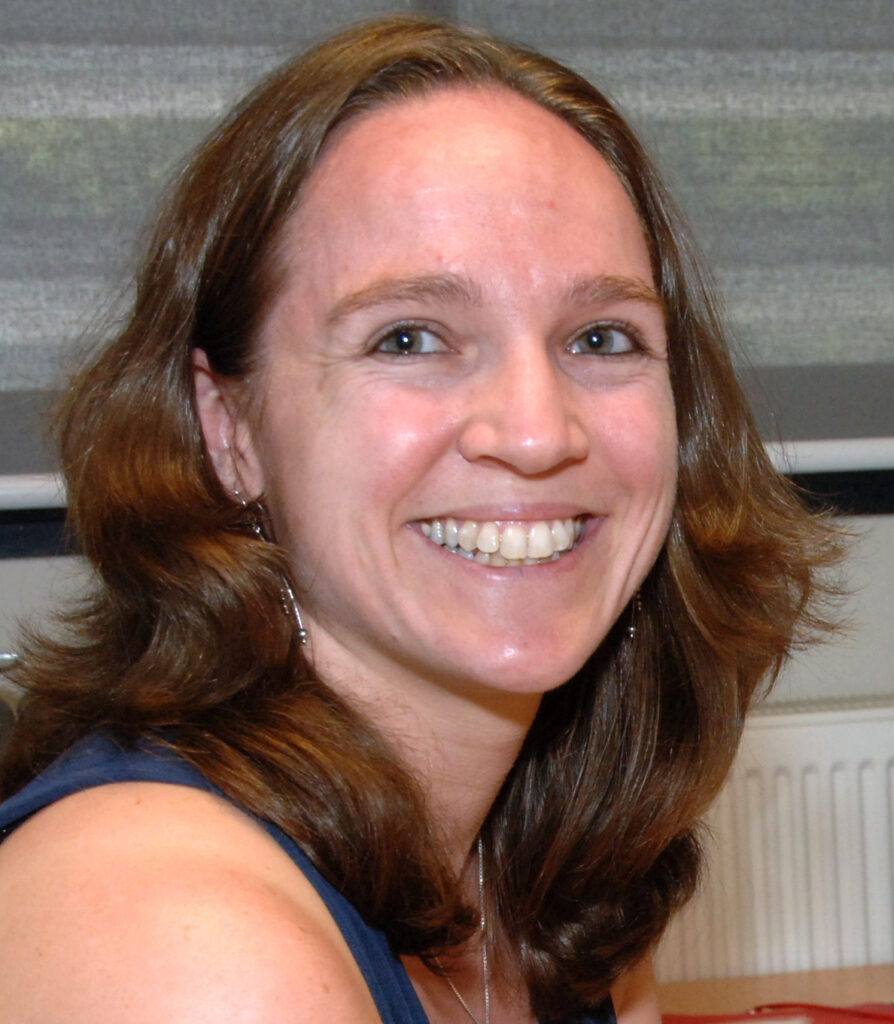
Photo by: Françoise Viala (IPBS-Toulouse/CNRS-UT3)
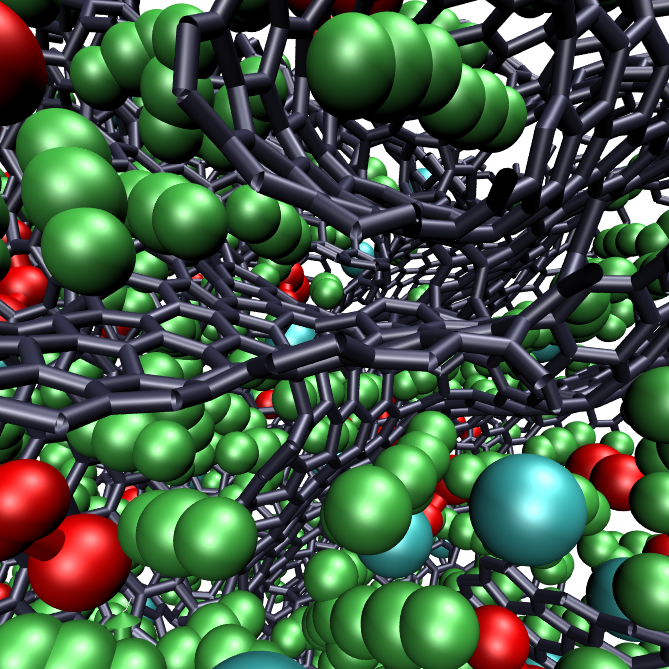
1 PRACE Ada Lovelace Award is annually awarded by PRACE to a female scientist who makes an outstanding contribution to and impact on HPC in Europe and the world, and serves as a role model for women who are at the start of their scientific careers. The award is named after the Countess of Lovelace, a British mathematician who lived in the 19th century and among else worked with Charles Babbage on the Machine they called the Analytical Engine – one of the first precursors of computers. Many historians regard Ada Lovelace’s contribution to this mechanical calculator as the very first algorithm – and herself as the first person to be rightly called a programmer.
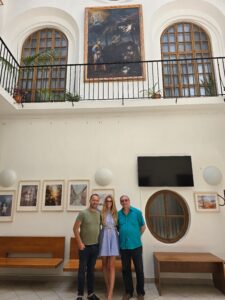 Data, Theology and HPC: A Collaboration Seeking Paths to Understanding 8 Jul - Continuing our collaboration with the Faculty of Theology at Trnava University!
The National Supercomputing Centre (NSCC) and the National Competence Centre for HPC will continue their collaboration with the Faculty of Theology at Trnava University in 2025. Following a successful joint study that demonstrated the potential of artificial intelligence and high-performance computing in the analysis of religious texts, representatives of both institutions met again to identify new areas and opportunities for future joint projects.
Data, Theology and HPC: A Collaboration Seeking Paths to Understanding 8 Jul - Continuing our collaboration with the Faculty of Theology at Trnava University!
The National Supercomputing Centre (NSCC) and the National Competence Centre for HPC will continue their collaboration with the Faculty of Theology at Trnava University in 2025. Following a successful joint study that demonstrated the potential of artificial intelligence and high-performance computing in the analysis of religious texts, representatives of both institutions met again to identify new areas and opportunities for future joint projects. Digital Twins of Society: HPC-Powered Simulations 25 Jun - Join us for a thought-provoking webinar exploring how artificial intelligence and multi-agent simulation technologies are helping researchers understand and predict complex societal dynamics. This session brings together leading experts in cultural cybernetics, cognitive modeling, and national-scale digital twin simulations.
Digital Twins of Society: HPC-Powered Simulations 25 Jun - Join us for a thought-provoking webinar exploring how artificial intelligence and multi-agent simulation technologies are helping researchers understand and predict complex societal dynamics. This session brings together leading experts in cultural cybernetics, cognitive modeling, and national-scale digital twin simulations.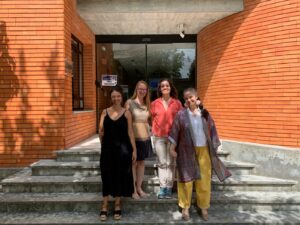 Strengthening EuroCC ties: NCC Slovakia visits FCCN in Lisbon 24 Jun - On June 24th, representative of NCC Slovakia, Božidara Pellegrini, met with colleagues from NCC Portugal at the headquarters of FCCN – Fundação para a Ciência e a Tecnologia in Lisbon.
Strengthening EuroCC ties: NCC Slovakia visits FCCN in Lisbon 24 Jun - On June 24th, representative of NCC Slovakia, Božidara Pellegrini, met with colleagues from NCC Portugal at the headquarters of FCCN – Fundação para a Ciência e a Tecnologia in Lisbon. 
